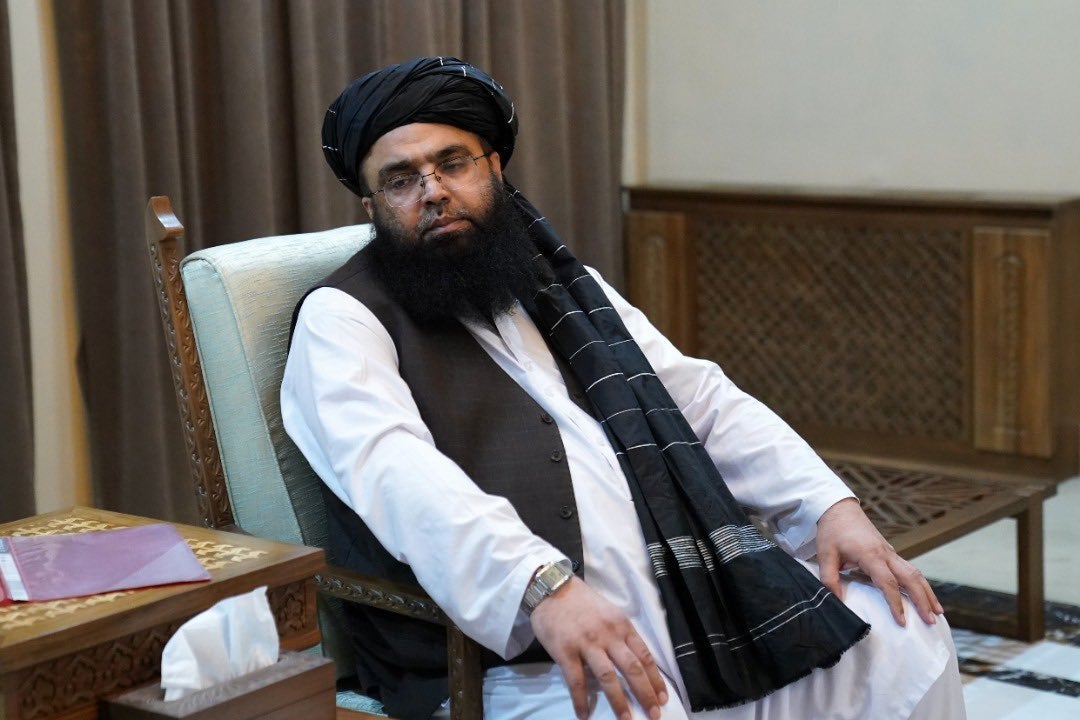Blacklisted by UN and accused of organising 2007 atrocity: Meet Afghanistan’s new prime minister
Taliban leader has been accused of collecting money from drug traffickers

The Taliban has appointed an interim prime minister blacklisted by the United Nations and known to have been an active member of terrorist operations in eastern Afghanistan.
The appointment, conducted in a late night power shift in Kabul on Tuesday, followed the illness of current leader Mahammad Hassan Akhund who reportedly needed time to recover.
The new interim prime minister Mohammad Abdul Kabir is now the acting head of the hardline Islamist regime in Afghanistan, marking a comeback in the top role, Taliban sources told TOLO news.
Blacklisted by the United Nations in the early 2000s, the newly appointed prime minister is known to have been an active member of terrorist operations in eastern Afghanistan, according to the UN’s consolidated list of sanctioned terrorism-related individuals.
The Taliban leader has been accused of collecting money from drug traffickers and served as a member of the group’s high leadership council.
Mohammad Kabir was also held responsible for a deadly attack on Afghan parliamentarians in northern Afghanistan’s Baghlan district in 2007.
It was recorded as Afghanistan’s biggest suicide bomb attack in which 72 people were killed, including 59 schoolboys. The US and Nato led administration had to announce a nationwide ban on students greeting politicians or dignitaries.
The suicide bomber triggered the blast up as schoolboys lined up to greet a visiting delegation of opposition parliamentary deputies in the town of Baghlan.
Nearly 100 were wounded in the attack. While the Taliban refused responsibility for the attack, Mohammad Kabir was widely known to have been responsible for the strike. In 2007, Taliban insurgents carried out more than 130 suicide attacks in Afghanistan. He was appointed as the military commander of the eastern Afghanistan zone by the Taliban in 2007, the UN list showed.
He was sanctioned by the UN in January 2001.
The leader has previously served as the acting prime minister in Taliban’s earlier regime in 2001 shortly before the group’s reign collapsed.
He was promoted from serving as the deputy prime minister to the top role in the existing regime by the Islamic Emirate regime’s chief Mohammed Hibatullah Akhundzada.
The Taliban’s supreme leader Akhundzada, who was himself one of the most wanted terrorists by the FBI, has ordered Kabir to control the affairs till Hassan Akhund gets better.
The all-male interim Afghan government named by the Taliban in August 2021 after the fall of Kabul includes several individuals targeted by UN sanctions.
Taliban’s acting minister of interior affairs Serajuddin Haqqani is on the FBI wanted list with a bounty of $10m (£8m) on his head.
He is head of the Haqqani Network militant group, which is affiliated with the Taliban and named in some of the deadliest attacks in the country during the war with US-led international forces. He reportedly oversaw a suicide bomb attack using an explosive-filled ambulance in Kabul in 2017 that killed 103 people.
Join our commenting forum
Join thought-provoking conversations, follow other Independent readers and see their replies
Comments
Bookmark popover
Removed from bookmarks